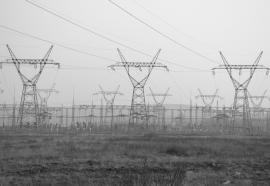PJM’s latest crisis—the underfunding of financial transmission rights that we’ve seen over the last few years—pushes regulators right to the edge. How far do they trust wholesale power markets? Do they accept the idea, proven by a famous economist, that freely traded financial instruments can work just as well—better even—than firm, physical contract rights?
In PJM’s case, we are told, the problem occurs when too much negative congestion shows up in real-time balancing. But if congestion is bad, shouldn’t negative congestion be good?









